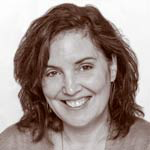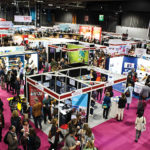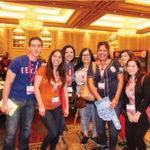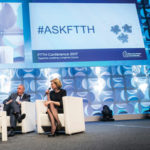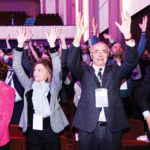
MEETING
It’s the 78th ACR Annual Meeting, which bills itself as “the premier scientific meeting for anyone involved in research or delivery of rheumatologic care or services.” Ron Olejko, ACR’s senior director of meeting services, anticipates 12,000 attendees from all over the world — primarily physicians, scientists, health professionals, and practice managers who conduct arthritis research or care for people with arthritis, autoimmune, rheumatic, and musculoskeletal diseases. Counting industry partners, Olejko said, total attendance likely will surpass 14,000 or 15,000.
CHALLENGES
Because the meeting is so enormous — cresting at 15,800 attendees in both 2011 and 2012 — it can only be held in cities with ample meeting space and hotel rooms. Yet as Olejko pointed out, “Every city has challenges, and nothing is perfect.” For instance, although Boston is beloved by many physicians — “a lot of people have trained in Boston or been trained by people who trained in Boston” — meeting cohesiveness will be a challenge. “We’re going to be in the developing seaport area,” Olejko said, “and right now there are only three hotels there.” As a result, many attendees will stay in the Back Bay, which will mean bussing them to and from the BCEC through Boston’s notoriously narrow, congested streets.
Attendance dipped slightly during last year’s ACR meeting in San Diego, which Olejko attributed to stricter controls on travel funding for international clinicians. “The rules overseas are changing dramatically,” Olejko said, “and becoming more stringent,” especially as they pertain to pharmaceutical companies.
Social media will be a prominent topic at this year’s meeting. “I don’t think our group is the most social-media savvy,” Olejko said, but sessions on Twitter and blogging will aim to help attendees “realize the value of social media in enhancing lifelong learning in medicine, as well as the value of extending their professional networks.”
Beyond that, the core of the meeting program will get down to brass tacks, with an opening lecture that explores emerging ideas on caring for the whole patient as well as the ways in which participatory medicine is revolutionizing health care. Other key lectures will focus on triggers for rheumatoid arthritis, a discussion of the microbiome — the community of microorganisms residing in or on the human body — from a basic-science perspective, and a debate on the use of the drug Belimumab in treating lupus. Sessions and lectures will also touch on every autoimmune disease. “We have an annual meeting planning committee that works very, very hard to get the best speakers in the field,” Olejko said, “because we want the most cutting-edge information, particularly in medicine, where everything is always changing.”
ACR will also offer sessions designated for continuous maintenance of certification (MOC) — “the new thing going in every subspecialty is maintenance of certification,” Olejko said — as well as a new program format called RheumChat sessions, which are 15-minute presentations on topics relevant to rheumatology. Practice managers will also find condensed educational offerings designed specifically for them.
“I always tell people [the meeting is] like New York City,” Olejko said. “It’s a huge meeting, but if you just kind of break it down into neighborhoods, then because it’s so big, it offers a wealth of options.”
Convene’s Pre-Con/Post-Con series asks meeting planners about their challenges and how they intend to address them (Pre-Con), and then circles back around after the meeting has occurred (Post-Con) to see how well they worked out.
